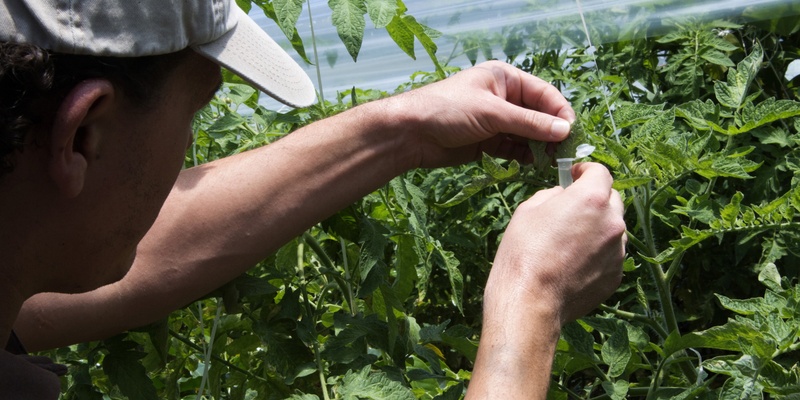Nicaragua benefits from the phytosanitary capacity evaluation: Watch the video!
Posted on Fri, 19 Feb 2021, 12:54

© FAO/ Ezequiel Becerra
Managua, 19 February 2021. The Instituto de Protección y Sanidad Agropecuaria (IPSA), national plant protection organization of Nicaragua, initiated a Phytosanitary Capacity Evaluation (PCE) in 2019, becoming the first country in the Latin America and Caribbean region to conduct a self-evaluation of the national phytosanitary system using an online tool in the last years.
The PCE, conducted with the support of the International Plant Protection Convention (IPPC) Secretariat and the FAO Office of Nicaragua, allowed the Instituto de Protección y Sanidad Agropecuaria to develop a new phytosanitary capacity-development strategy, and to improve the national phytosanitary legislation of Nicaragua in record time. The revision of the national legal framework in relation to plant health culminated with the approval of the "Nicaraguan Phytosanitary Protection Law" by the National Assembly of Nicaragua in March 2020. The new phytosanitary law allows Nicaragua to compliant with international obligations established by the Convention text, and includes modern provisions for e-Commerce and ePhyto.
Fully satisfied with the outcome of the PCE, Nicaragua was eager to share its experience and produced avideo detailing the steps taken .
From the implementation of the PCE Nicaragua had a lot to benefit. The participation of national stakeholders in the PCE process helped the country strengthen the dialogue and promote a more active collaboration between the national plant protection organization of Nicaragua and the other interested parties. IPSA started interacting more closely with relevant actors: from producers, exporters and importers, to universities and government institutions. The phytosanitary capacity evaluation process involved also representatives of the General Directorate of Customs, the Ministry of Agriculture and Forestry of Nicaragua, bthe Ministry of the Environment and the Natural Resources, the National Forestry Institute, the Nicaraguan Institute of Agricultural Technology, and finally the Ministry of Trade, Industry and Development.
Finally, the PCE provided basic instruments to help IPSA managing and mobilizing resources and build up a strategy to develop the phytosanitary capacity of the country. The evaluation process contributed to incentivize and enhance the conditions of the operational personnel of the NPPO. IPSA staff are now more empowered and motivated to fulfilling the mission, vision and institutional objectives of the IPPC. By implementing the PCE, the operational staff employed at IPSA earned knowledge of phytosanitary legislations, surveillance, certification, phytosanitary import-regulation systems, diagnosis, among other topics included in the PCE modules.
The IPPC phytosanitary capacity evaluation allows countries to continue improving and strengthening their phytosanitary services, which contributes to ensuring sovereignty, improving food security, and promoting safe trade and market access. The instance of Nicaragua, illustrated through this video, provides a successful case not only for the Latin America region, but also for the global phytosanitary community.
Watch the video: Implementing the Phytosanitary Capacity Evaluation: the successful case of Nicaragua

